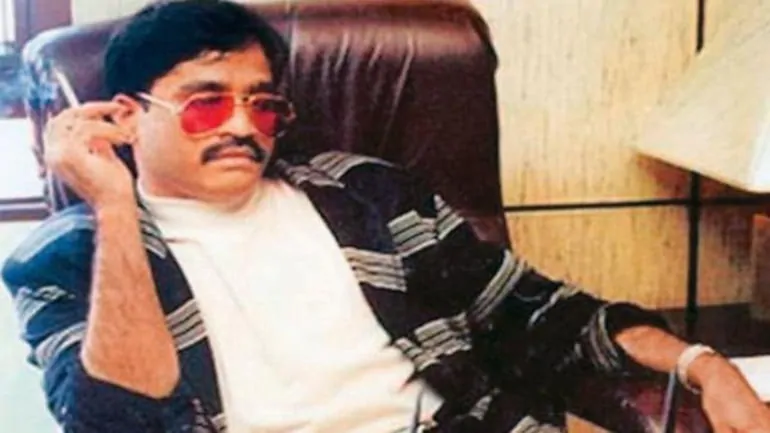
SOURCE: INDIA TODAY
Pakistan on Saturday admitted that Dawood Ibrahim, one of India’s most-wanted men, lives within its territory – in Karachi, in a building called the ‘White House’.
Dawood Ibrahim, who heads a vast and multifaceted illegal business, had emerged as India’s most-wanted terrorist after the 1993 Mumbai blasts. For years, Pakistan has been denying that it was sheltering him. This was despite repeated statements and evidence that India provided from time-to-time about his presence in Pakistan.
The revelation about Dawood Ibrahim’s presence was made on Saturday when Pakistan placed his name on the list of designated terrorists operating within its territory. The list was submitted before the Financial Action Task Force (FATF), a global money laundering and terrorist financing watchdog.
Pakistan has claimed that it has directed placing travel restrictions on Dawood Ibrahim, besides putting an arms embargo and freezing his funds.
In 2003, the US declared Dawood Ibrahim as a Specially Designated Global Terrorist.
India has repeatedly asked the Government of Pakistan to hand over Ibrahim to India so that he can be prosecuted for the crimes committed by him. It is reported that Ibrahim is based in the southern port city of Karachi.
Howver, soon after issuing a list bearing name of Dawood Ibrahim as a designated terrorist along with his address in Karachi, Pakistan denied his presence on its soil. It said there is no admission that Dawood Ibrahim is in Pakistan.
Reacting to media reports on Dawood Ibrahim in India and Pakistan, Pakistan’s Foregn Ministry issued a statement rejecting the reports.
“The reports in certain sections of the media about Pakistan imposing any new sanctions measures, through these notifications, are not factual. Similarly, the assertions made by some sections of the Indian media, as to Pakistan admitting to the presence of certain listed individuals (Dawood Ibrahim) on its territory, based on the information contained in the notifications, is baseless and misleading,” Pakistan’s Foreign Ministry said in its statement.
THE REAL MOTIVE
While this may be the first official admission from Pakistan that it has been sheltering Dawood Ibrahim, its decision to accept this and reveal his whereabouts is part of the country’s desperate attempt to wriggle out of the FATF’s grey list and avoid being placed on the ‘black list’ along with North Korean and Iran.
To impress FATF in the hope of escaping further negative ratings due to its poor action against terrorism, Pakistan on Saturday said it has imposed tough financial sanctions on 88 banned terror groups and their leaders.
Besides Dawood Ibrahim, these include wanted terrorists Hafiz Saeed and Masood Azhar.
In June 2018, FATF had put Pakistan on its grey list and asked Islamabad to implement a plan of action by the end of 2019. However, the deadline was extended later due to the Covid-19 pandemic.
The Pakistan government issued two notifications on August 18 announcing sanctions on key figures of terror outfits such as 26/11 Mumbai attack mastermind and Jamaat-ud-Dawa (JuD) chief Hafiz Saeed, Jaish-e-Mohammed (JeM) chief Masood Azhar, and underworld don Dawood Ibrahim.
The Pakistan government is also learnt to have ordered seizures of all movable and immovable properties of these outfits and individuals, and freezing of their bank accounts.
These listed terrorists have been barred from transferring money through financial institutions, purchasing of arms and travelling abroad, media reports in Pakistan said.
The notifications ratified a complete ban on all leaders and members of the defunct Tehreek-e-Taliban Pakistan (TTP) hiding in the Pakistan-Afghanistan border areas.
On August 12, Pakistan Parliament’s lower house passed four bills related to the tough conditions set by the FATF after the government and the Opposition reached a consensus. The legislation was part of the efforts by Pakistan to move from the FATF’s grey list to the white list.
In its third and final plenary held virtually due to the Covid-19 pandemic in June, the FATF decided to keep Pakistan in the “grey list” as Islamabad failed to check the flow of money to terror groups like Lashkar-e-Taiba (LeT) and Jaish-e-Mohammed (JeM).
WHY IS PAK WORRIED ABOUT GREY LIST?
If Pakistan continues to remain under FATF’s grey list, it will become extremely difficult for the country to get financial aid from the financial institutions like the IMF, World Bank, ADB, and the European Union.
A negative FATF ranking is a strong indication of lack of trust in the country’s economy and the government’s efforts to check money laundering and terrorism.
Pakistan needs loans and monetary support from global lenders because its economy has been in the doldrums for several years and the coronavirus pandemic has only worsened it.
If Pakistan fails to comply with the FATF directive by October, there is a possibility that the global body may put the country on the ‘Black List’ along with North Korea and Iran.
The next FATF plenary is in October and the body will review Pakistan’s status in September. India Today TV has learnt that Pakistan needs 15 votes in the 37-member FATF to be off the grey list. However, it needs support from only four countries to avoid being put in the ‘black list’.
Sources say Pakistan has the support of Turkey, Malaysia, China, and Hong Kong.
The FATF is an inter-governmental body established in 1989 to combat money laundering, terrorist financing, and other related threats to the integrity of the international financial system. The FATF currently has 39 members including two regional organisations – the European Commission and Gulf Cooperation Council.






